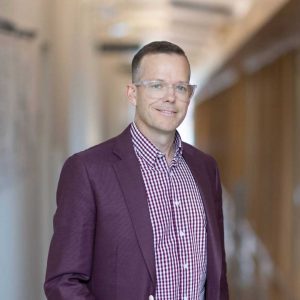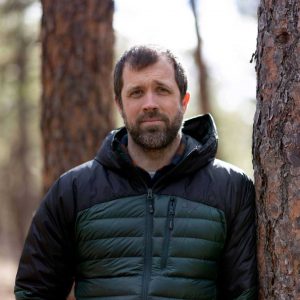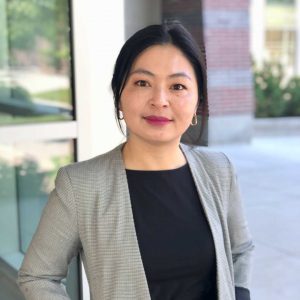Three outstanding researchers from UBC Okanagan have been recognized with the title of Principal’s Research Chair

Three top UBC Okanagan researchers receive PRC designations.
The Principal’s Research Chairs (PRC) program is an initiative of the Office of the VPRI and the Office of the Provost and Vice-President, Academic that provides financial research support for UBC Okanagan faculty engaged in outstanding research or creative scholarship. UBCO PRCs are leaders who are expected to build and sustain world-class research programs.
The PRC program helps retain top researchers and recruit new talent to UBCO. PRCs also serve to support and intensify ongoing research with the ultimate goal of achieving further external recognition and awards. Each PRC recipient receives five years of funding in one of two tiers.
TIER 1 CHAIR
Dr. Jonathan Little, Principal’s Research Chair in Metabolism

Science is just the starting point for Dr. Jonathan Little in understanding human metabolism. He prioritizes people at the centre of his research.
A professor in the Faculty of Health and Social Development, Dr. Little specializes in optimizing metabolic health with a focus on individual responses to treatment of Type 2 diabetes. His research has led to significant advancements in remission of the disease, previously only thought to be a chronic progressive condition.
“The key to metabolism research is the individualized response. It’s exciting that we’re really starting to understand how we can get people into remission,” says Dr. Little.
Treating Type 2 diabetes isn’t a one size fits all approach. Blood sugar problems develop either through insulin resistance, the body’s inability to produce the right amount of insulin, or both, to varying degrees. The combination of factors is unique to each person. Prevention and treatment strategies depend not only on what is happening at the cellular level for each individual, but which personalized exercise and nutrition treatments work best.
Dr. Little describes this holistic approach as “cell-to-society” research, and his lab is among the few in Canada with capacity to conduct studies ranging from the interrogation of molecular mechanisms in humans, to large-scale, community-based clinical trials. His vision is to help the campus develop an international reputation as a metabolism powerhouse.
“We are known internationally for high-intensity interval training, Type 2 diabetes remission and low-carbohydrate diet research. One of the goals for the PRC is to develop a Centre for Metabolism Research that would be a hub for UBCO researchers and a world-class training ground for graduate students and postdoctoral fellows in this cell- to-society approach.”
TIER 2 CHAIRS
Dr. Mathieu Bourbonnais, Principal’s Research Chair in Wildland Fire Risk and Fire Management
 Dr. Mathieu Bourbonnais doesn’t think addressing wildfire is a challenge limited to the summer months. For the wildland fire expert, solutions require thoughtful, multi-faceted strategies throughout the year.
Dr. Mathieu Bourbonnais doesn’t think addressing wildfire is a challenge limited to the summer months. For the wildland fire expert, solutions require thoughtful, multi-faceted strategies throughout the year.
“Fire tends to become front and centre when there’s big emergencies, but we’re in a whole new realm of wildfire now, and we’re realizing that suppression alone can’t solve the problem,” he says.
Proactive management is a key focus of his research. An assistant professor in the Irving K. Barber Faculty of Science, Dr. Bourbonnais is collecting accurate weather and fire data through sensors that help shape strategies for risk management and prescribed burns.
As part of that work, he is developing a provincial sensor network supported in part by Rogers Communication. Data from the sensors is collected in near real-time and combined with satellite imagery and synoptic weather patterns to map current and forecasted fire risk using AI.
“We need to fill gaps in our wildfire risk monitoring and detection networks, especially around rural and Indigenous communities, which are impacted the most by wildfires and evacuations,” he says. “Right now, information about wildfire risk, fire detection and monitoring is hosted across multiple platforms. By combining them, we can help firefighters and emergency management respond to fires more effectively, and can also fill a big role in public safety.”
Dr. Bourbonnais notes fire can be a positive force and is currently working on a pilot project to see how the sensors can be used to more effectively plan prescribed burns.
“Fire is one of the ways we can positively impact a landscape, if we manage it in the right way,” he says. “When we are conducting prescribed burns, we are looking for really specific conditions that allow us to use fire safely to meet objectives, like restoring habitat or reducing fuel loads to protect communities. If your nearest weather station is dozens of kilometres away, it’s challenging to find that window of time,” he says.
In the coming year, Dr. Bourbonnais plans to integrate the sensors in the provincial network with other technologies, including cameras, to further increase early detection and monitoring capabilities.
Dr. Thuy Dang, Principal’s Research Chair in Natural Products Biotechnology
 First in her family to go to university, Dr. Thuy Dang was always fascinated by nature and science. Her early experiences sparked a passion for medicinal plant research.
First in her family to go to university, Dr. Thuy Dang was always fascinated by nature and science. Her early experiences sparked a passion for medicinal plant research.
Herbal remedies were central to Dr. Dang’s childhood in Vietnam. “When you were sick you wouldn’t always go to the pharmacy – first you would go to the garden,” she says. This early connection to therapeutic plants remains a core value in her research.
Many medicines come directly, or are modified, from natural compounds. Inspired to make important compounds more accessible and generate new compounds with novel functions, Dr. Dang’s research aims to learn the chemistry and genetics of medicinal plants to recreate, and even improve upon them, in the laboratory.
An assistant professor in the Irving K. Barber Faculty of Science, Dr. Dang focuses on developing innovative ways to produce existing and novel valuable chemicals for treatments of cancer, opioid addiction and immune-inflammation, among other things. The environmental and economic benefits to lab-derived compounds are significant.
“Anti-cancer drugs are astronomically expensive. They’re made in minute amounts from rare trees, which are usually destroyed when the medicinal compounds are extracted. Learning from the plants will help us make better, more affordable drugs, and conserve our biodiversity”.
Dr. Dang will be using her PRC funding to support sustainable innovations for the resilient future of bioproduction, including mining new enzymes for pharmaceutical manufacturing, engineering microbes and plants to produce new drugs, and focusing on single-cell genomics. As the study of an organism’s genetic and chemical information at a single-cell resolution, the process can shed new light into the bioproduction machinery in plants and open up unprecedented metabolic engineering opportunities.
Dr. Dang looks forward to speeding up the discovery process and UBCO’s prominence in this field. “We will be at the frontier, opening avenues to tap into the enormous biochemical potential of plants for our health and well-being.”